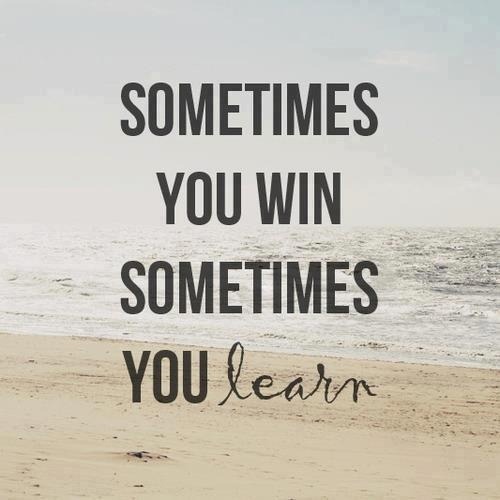"Mistakes are painful when they happen, but years later a collection of mistakes is what is called experience" (Denis Waitley).
 Have any of you ever had to deal with huge, snowballing problems that Maxwell describes? Accurately assessing and then dealing with problems is just what everybody needs to do in order to lead successful lives and grow. They're a part of daily life, so learn to enjoy facing them; enjoy the journey toward a goal (yep, I'm thinking of The Alchemist).
Have any of you ever had to deal with huge, snowballing problems that Maxwell describes? Accurately assessing and then dealing with problems is just what everybody needs to do in order to lead successful lives and grow. They're a part of daily life, so learn to enjoy facing them; enjoy the journey toward a goal (yep, I'm thinking of The Alchemist).Maxwell's way to successfully overcoming problems and learning from them are (153-156):
- Anticipate. Be ready for something to be challenging as you go into something.
- Communicate. Don't be afraid to talk to people about your problem--oftentimes, problems involve other people from relationships to collaborating on a group project.
- Evaluate. When it comes to evaluating a problem, more problems can arise when we overestimate or underestimate it. So taking all the facts in with a grain of salt is crucial to solving the problem efficiently.
- Appreciate. What would life be like if we could all be successful winners without ever having to work for anything? It's ostensibly nice, but just think about it for a moment.
Maxwell compares running into problems with an eagle flying in turbulent winds. Turbulent winds cause the eagle to fly higher, they give the eagle a larger view. Turbulent winds lift the eagle above harassment. Turbulent winds allow the eagle to use less effort, turbulent winds allow the eagle to stay up longer. Turbulent winds help the eagle to fly faster (156-157). Be like the eagle and soar to great heights as you address every problem that comes your way.
Although we do our best to get through our problems, we still run into bad experiences. I've sure had my share of poop thrown at me, and although we face different forms of pain you've probably had a bunch of lame things happen to you too. It is so easy to let certain bad experiences get you down, but it's during these moments that our strength shines out the brightest.
Maxwell believes that the most important thing to do during a rough time is to put your losses into perspective (162-171).
- Accept your humanness. Nobody is perfect.If something bad happens, it's not because you messed up worse than your friends or that you did anything inadequately. Life has its ups and downs, right? So as we relish and bask in the ups, we need to learn to at least accept and maybe even appreciate the downs.
- Learn to laugh at yourself and life. At least try to smile. It'll make the biggest difference; try it yourself next time.
- Don't base your self-worth on a bad experience, don't feel sorry for yourself, and consider your failures as a process to learn and improve. It's kind of giving yourself a bit of tough love. Look at things objectively, and you'll be able to pull yourself out of the rut faster than if you mope around for days over getting stuck.
- Don't give up. Because you're worth it!
- Don't let your bad experience become worse experiences. I admit that I'm guilty of doing this. When I went through some hard times, I would often replay those events over and over again in my head. Instead of living my darkest days once, I ended up reliving them a countless number of times, and doing this caused even more damage. Maxwell also focuses on learning as the punches come. If you don't realize what you did wrong, you could end up literally reliving the same bad experience again and again in different forms.
- Let the bad experience lead you to a good experience. Darkness exists, and so does light. Find the light.
So this concludes all I have to say about Maxwell's ninth and tenth chapters. What did you think? Let me know in the comments below! Also, please subscribe to Smiles No Matter for future updates. Next week, we'll be studying the eleventh and twelfth chapters next Friday. Hope to see you then!
Smile on,
-Riley XO









